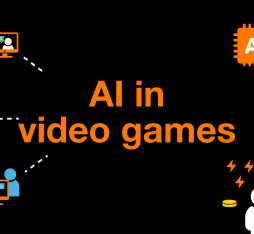• They predict how important these technologies could be to health, education, training and entertainment through an adapted approach (accessibility by design), new mechanisms and a change in the law.
• They call for a reexamination of the complex way in which carbon footprint is measured, and argue that this measure should be incorporated into a holistic approach that includes other environmental impacts.
• The most significant potential progress cited: “Exploring the possibility of a non-territorialized self-governance specific to immersive technologies: a regulation “in metaverses and made by metaverses,” with values, laws, police and a justice system.”
In October 2023, the Simplon Foundation, in collaboration with Agefiph, published “Pour des technologies, usages et expériences immersives plus responsables” (Toward more responsible immersive experiences, usage and technologies) (pdf). This white paper summarizes the work of more than 30 stakeholders—including Orange—involved in , XR (extended reality) technologies, CSR/ESG, etc. on challenges related to immersive technologies. In the context of a fall in media hype, this collaborative project focuses on the opportunities that immersive technologies bring, as well as their sustainability. “By setting foot into the immersive world, we quickly realized that the topics of responsibility and sustainability related to its development were rarely discussed,” explained Frédéric Bardeau, President and Co-Founder of Simplon.co. “This collective brainstorming project worked on the basis of horizontal and egalitarian logic. Each contributor had the same weight in terms of voice, whether it was an expert freelancer, a medium-sized organization specialized in the carbon impact of digital technology, or a large international group like Orange or Meta.” The objective of the working group originally behind the document was to move away from any simplistic or partisan vision and to establish an honest, transparent and forward-looking perspective of immersive technologies.
The need for standardization of methods for assessing the ecological impact of immersive technologies
The Challenge of Anticipating a Strong Growth in Usage
The current state of investments and innovations indicates that immersive technologies will eventually become a digital cornerstone, with applications in health, education, entertainment and more. Meta forecasts that the metaverse sector could contribute between 259 and 489 billion euro in turnover per year to the EU’s GDP by 2035.
Orange has been considering and experimenting with immersive technologies for years, according to Morgan Bouchet, Global Head of XR and Metaverse: “The Group is already very active on the subject with two flagship initiatives — Eternal Notre-Dame and Safe Zones.” The Eternal Notre-Dame VR (virtual reality) experience illustrates the powerful role of immersive technology in exploring a monument or a work of art in a different way and in keeping heritage alive. As for Safe Zones, these are spaces designed to protect against cyberbullying, deployed by Orange within the Fortnite and Roblox gaming platforms. They embody the effort made to limit the negative aspects of immersive technologies. The Orange Group has therefore joined its long-time partner Simplon on this new path. “Discussing viewpoints with stakeholders who have different levels of understanding and apprehension around the subject has fed into our own reflections and has brought up new questions,” said Bouchet.
What can we take away from the white paper that came from these discussions? Four key dimensions are addressed: diversity and inclusion, health, environment, and governance and regulation. The main challenges and best practices for each of these areas of investigation are set out. In terms of governance and ethics, the document notes that regulations, such as the European GDPR (General Data Protection Regulation), already apply to immersive environments, where initiatives such as Safe Zones are also deployed. With regard to environmental impact, the white paper notes that immersive technologies can be a lever for reducing greenhouse gas emissions, but that measuring their footprint is difficult, despite the emergence of projects such as CEPIR, which focuses on the assessment of the environmental impacts of XR.
Lessons Learned and Recommendations
The white paper proposes some guidelines for action and prevention to anticipate the impacts of increased use of immersive technologies, while developing a proactive vision between utopia and dystopia — an immersive “ .” Even if the most significant progress would be the proper governance of immersive worlds, several opportunities for innovation are mentioned: the issue of online identity, the protection of personal data, the adaptation of civil and criminal law, and intellectual protection and copyright.
The recommendations include the need for standardization of methods for assessing the ecological impact of immersive technologies, and the call for multistakeholder and supranational approaches to address issues that transcend borders. The white paper exemplifies this last idea through the federation of “different stakeholders who are committed to sharing their feedback and enriching the view of social, societal and environmental impacts involved in the development of immersive technologies,” said Paula Acuna-Pig, Director of Major Projects and ESG Business Partner at Orange. “We are starting to ask these questions, but we do not have all the answers. Reflection must now come from the heart of the immersive technologies ecosystem.” National and international days against bullying and cyberbullying, like UNESCO’s International Day against Violence and Bullying at School Including Cyberbullying in November, are an opportunity to put a spotlight on these topics.
Read more :
Launch of the white paper: “Pour des technologies, usages et expériences immersives plus responsables” (Toward more responsible immersive experiences, usage and technologies)
“An online service providing access to simulations of readily available, real-time, shared 3D spaces in which we can share immersive experiences,” according to the definition set out in the interministerial report for the French commission on the development of metaverses in October 2022.
A concept theorized by Author and Futurologist Kevin Kelly in 2010, designating a society that progresses over a long period of time, thanks to technological advances (halfway between dystopia and utopia).








